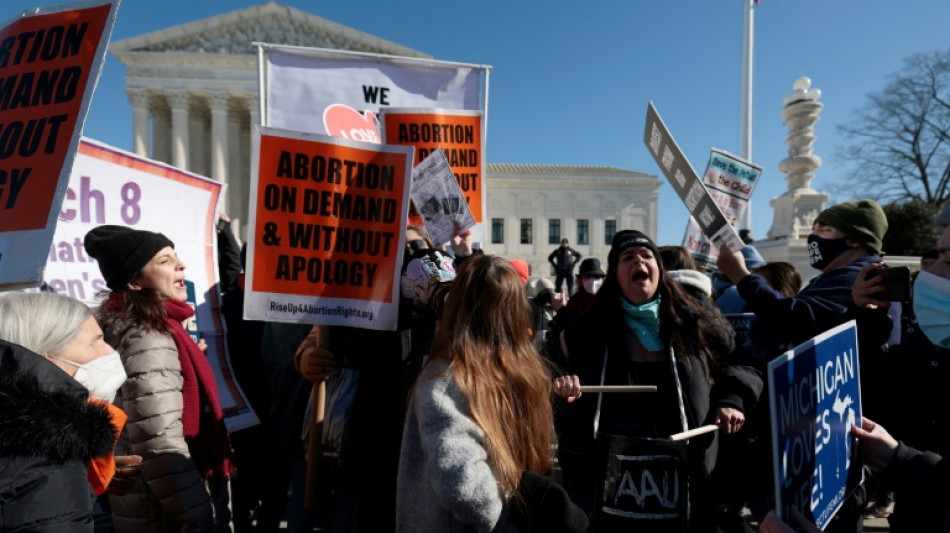
-
 Polish farmers march against Mercosur trade deal
Polish farmers march against Mercosur trade deal
-
Swiatek wins in 58 minutes as Poland reach United Cup semis

-
 Ski great Hirscher pulls out of Olympics, ends season
Ski great Hirscher pulls out of Olympics, ends season
-
'War is back in vogue,' Pope Leo says
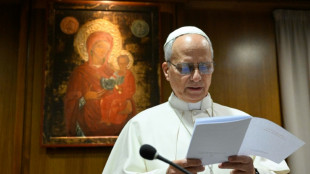
-
 Storms pummel northern Europe causing travel mayhem and power cuts
Storms pummel northern Europe causing travel mayhem and power cuts
-
France has right to say 'no' to US, Paris says
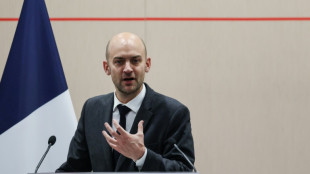
-
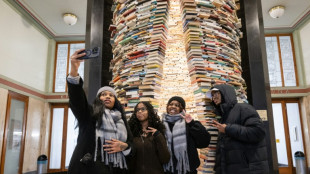 TikTok drives 'bizarre' rush to Prague library's book tower
TikTok drives 'bizarre' rush to Prague library's book tower
-
EU countries override France to greenlight Mercosur trade deal

-
 Russia joins Chinese, Iran warships for drills off S.Africa
Russia joins Chinese, Iran warships for drills off S.Africa
-
Stocks rise ahead of US jobs data and key tariffs ruling

-
 'All are in the streets': Iranians defiant as protests grow
'All are in the streets': Iranians defiant as protests grow
-
Kurdish fighters refuse to leave Syria's Aleppo after truce

-
 Grok turns off AI image generation for non-payers after nudes backlash
Grok turns off AI image generation for non-payers after nudes backlash
-
Germany factory output jumps but exports disappoint

-
 Defiant Khamenei insists 'won't back down' in face of Iran protests
Defiant Khamenei insists 'won't back down' in face of Iran protests
-
Russian strikes cut heat to Kyiv, mayor calls for temporary evacuation

-
 Switzerland holds day of mourning after deadly New Year fire
Switzerland holds day of mourning after deadly New Year fire
-
Hundreds of thousands without power as storms pummel Europe

-
 Man City win race to sign forward Semenyo
Man City win race to sign forward Semenyo
-
Experts say oceans soaked up record heat levels in 2025

-
 'Would be fun': Alcaraz, Sinner tease prospect of teaming up in doubles
'Would be fun': Alcaraz, Sinner tease prospect of teaming up in doubles
-
Man City win race to sign Semenyo

-
 Chinese AI unicorn MiniMax soars 109 percent in Hong Kong debut
Chinese AI unicorn MiniMax soars 109 percent in Hong Kong debut
-
Iran rocked by night of protests despite internet blackout: videos

-
 Swiatek romps to United Cup victory in 58 minutes
Swiatek romps to United Cup victory in 58 minutes
-
Procession of Christ's icon draws thousands to streets of Philippine capital

-
 Every second counts for Japan's 'King Kazu' at 58
Every second counts for Japan's 'King Kazu' at 58
-
Syria announces ceasefire with Kurdish fighters in Aleppo

-
 Russia hits Ukraine with hypersonic missile after rejecting peacekeeping plan
Russia hits Ukraine with hypersonic missile after rejecting peacekeeping plan
-
Asian stocks mixed ahead of US jobs, Supreme Court ruling

-
 Scores without power as Storm Goretti pummels Europe
Scores without power as Storm Goretti pummels Europe
-
Sabalenka gets revenge over Keys in repeat of Australian Open final

-
 Fresh from China, South Korea president to visit Japan
Fresh from China, South Korea president to visit Japan
-
Injured Kimmich to miss icy Bundesliga return for Bayern

-
 Rybakina has little hope of change to tennis schedule
Rybakina has little hope of change to tennis schedule
-
Osimhen, Nigeria seek harmony with Algeria up next at AFCON

-
 US immigration agent's fatal shooting of woman leaves Minneapolis in shock
US immigration agent's fatal shooting of woman leaves Minneapolis in shock
-
After fire tragedy, small Swiss town mourns 'decimated generation'
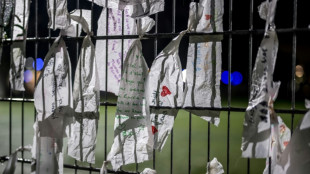
-
 Switzerland mourns Crans-Montana fire tragedy
Switzerland mourns Crans-Montana fire tragedy
-
Russia bombards Kyiv after rejecting peacekeeping plan

-
 Crunch time for EU's long-stalled Mercosur trade deal
Crunch time for EU's long-stalled Mercosur trade deal
-
Asian stocks rally ahead of US jobs, Supreme Court ruling

-
 'Sever the chain': scam tycoons in China's crosshairs
'Sever the chain': scam tycoons in China's crosshairs
-
Bulls-Heat NBA game postponed over 'moisture' on court

-
 Arsenal's Martinelli 'deeply sorry' for shoving injured Bradley
Arsenal's Martinelli 'deeply sorry' for shoving injured Bradley
-
Christ icon's procession draws thousands to streets of Philippine capital
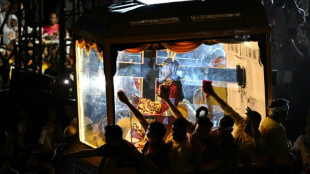
-
 Moleiro shining as Villarreal make up La Liga ground after cup failures
Moleiro shining as Villarreal make up La Liga ground after cup failures
-
New Chelsea boss Rosenior faces FA Cup test

-
 Vietnam shrugs off Trump tariffs as US exports surge
Vietnam shrugs off Trump tariffs as US exports surge
-
Syrian government announces ceasefire in Aleppo after deadly clashes


Many anti-abortion Americans would still help friends and family seeking one
Almost half of Americans morally opposed to abortion would help a friend or family member with arrangements to get one, and a majority would offer emotional support, a new study said Friday.
The authors of the paper, which appeared in the journal Science Advances, wrote the finding showed that people are willing to cross ideological and partisan lines to help others in their personal networks, something they referred to as "discordant benevolence."
"At first blush, these people may appear as hypocrites. They are not," said Sarah Cowan, a sociologist at New York University and the lead author of the article, in a statement.
"They are at a moral crossroads, pulled by their opposition to abortion and by their inclination to support people they care about."
The study was drawn from surveys and interviews conducted in 2018 and 2019 respectively, and comes after Texas passed a law allowing residents of the state to sue others who "aided or abetted" abortions performed after six weeks of pregnancy.
The Supreme Court could soon roll back decades of precedent by ruling abortion is not a constitutional right. The issue is deeply contentious and divides the public along political lines between Democrats and Republicans.
The new study was based on survey responses from more than 1,574 people, and separately 74 in-depth interviews.
Of those morally opposed, 76 percent said they would offer emotional support —- compared to 96 percent of those who are not morally opposed, or whose view depended on circumstances.
But the type of support varied greatly, reflecting the social meaning of money and the view that spending money is a means to enact one's values, the authors said.
Just six percent of those morally opposed would directly help a friend or relative pay for the procedure, compared to the 45 percent who said they would help with ancillary costs.
Among those not morally opposed, 54 percent would help pay for the procedure, which typically costs $500 in the first trimester.
- Moral conflict -
Social scientists have long been interested in what explains helpful behavior.
Factors are thought to range from the act of kindness causing a person to feel good about themselves, to a sense of duty to their kinship networks and expectation of reciprocity in future.
But the authors said scenarios where rendering help placed the helper in a moral conflict were less studied.
Based on their in-depth interviews, they found people who were willing to help despite their inner opposition relied on three main rationalizations.
The first was "commiseration," or reasoning that people are worthy of care despite their imperfections in an imperfect world.
The second was "exemption" -- carving out an exception for their loved ones in particular, while the third was "discretion," -- the idea that what is right or wrong is inherently personal, not universal.
"If it were my sister...I would want to talk to her to make sure she's thinking about every possible thing," said Ryan, a person interviewed in the survey.
"But if, ultimately, she's like 'No, (Ryan), I can handle this,' then, 'Ok, do what you gotta do,' you know? But it's just because you love someone."
Ch.Kahalev--AMWN

